Highlights of 2021
Students
A total of 1002 students graduated from Reykjavik University in 2021: 209 in February, 600 in June and 86 in the autumn. Six hundred three students graduated from undergraduate studies with Bachelor's degrees or diplomas, 288 from graduate studies and four from doctoral studies. In addition to university graduates, 42 students graduated from preliminary studies. In the autumn of 2021, RU welcomed around 1,800 new students and 196 exchange students worldwide.
Full-time equivalent students (FTE)*
| Departments | Male | Male% | Female | Female% | Non-binary / Other | Non-binary / Other% | Total FTE |
|---|---|---|---|---|---|---|---|
| Department of Computer Science | 551 | 76% | 172 | 24% | 0 | 0 | 723 |
| Department of Engineering | 417 | 55% | 322 | 45% | 1 | 0,0012 | 740 |
| Department of Business | 352 | 51% | 325 | 49% | 0 | 0% | 677 |
| Department of Law | 104 | 33% | 209 | 67% | 0 | 0% | 313 |
| Department of Applied Engineering | 305 | 82% | 74 | 18% | 0 | 0% | 380 |
| Department of Psychology | 60 | 17% | 286 | 83% | 0 | 0% | 346 |
| Department of Sport Science | 91 | 58% | 67 | 42% | 0 | 0% | 158 |
| Preliminary Studies | 101 | 73% | 31 | 27% | 0 | 0% | 132 |
| Total | 1980 | 58% | 1488 | 42% | 1 | 0,0003 | 3246 |
Overview of graduates in 2021
| Departments | Male | Female | Non-binary / Other | Total |
|---|---|---|---|---|
| Department of Engineering | 90 | 11 | 1 | 102 |
| Diploma | 67 | 2 | 69 | |
| Bachelor | 23 | 9 | 1 | 33 |
| Department of Business Administration | 117 | 150 | 267 | |
| Diploma | 53 | 62 | 115 | |
| Bachelor | 64 | 87 | 151 | |
| PhD | 1 | 1 | ||
| Department of Computer Science | 141 | 55 | 1 | 197 |
| Diploma | 3 | 3 | ||
| Bachelor | 120 | 54 | 1 | 175 |
| Master | 17 | 1 | 18 | |
| PhD | 1 | 1 | 2 | |
| Department of Law | 34 | 73 | 107 | |
| Bachelor | 22 | 38 | 60 | |
| Master | 8 | 18 | 26 | |
| PhD | 1 | 1 | ||
| Department of Psychology | 17 | 78 | 95 | |
| Bachelor | 9 | 59 | 68 | |
| Master | 8 | 59 | 26 | |
| PhD | 1 | 1 | ||
| Department of Sport Science | 25 | 21 | 46 | |
| Bachelor | 19 | 13 | 32 | |
| Master | 6 | 8 | 14 | |
| Grand Total | 521 | 479 | 2 | 1002 |
Graduates by degree
| Degree | Male | Female | Non-binary/other | Total |
|---|---|---|---|---|
| Diploma | 70 | 2 | 72 | |
| Bachelor | 294 | 280 | 2 | 576 |
| Master | 155 | 194 | 349 | |
| PhD | 2 | 3 | 5 | |
| Total | 521 | 479 | 2 | 1002 |
Graduations
| January/ February | 204 |
| June | 689 |
| October | 109 |
| Total | 1002 |
Number of degrees by gender
| Male | 521 |
| Female | 479 |
| Non-binary / Other | 2 |
| Total | 1002 |
All figures are based on 15 October 2021. All study lines included, also without degree and exchange students
Cooperation with Industry
Reykjavik University prides itself on its close ties to industry. Individual departments collaborate with numerous companies and institutions in Iceland and abroad to offer internships and practical course work for students. Advisory groups from industry are also part of curricula development. These ties to industry have proven strong through the pandemic and these offerings are key to the student experience.
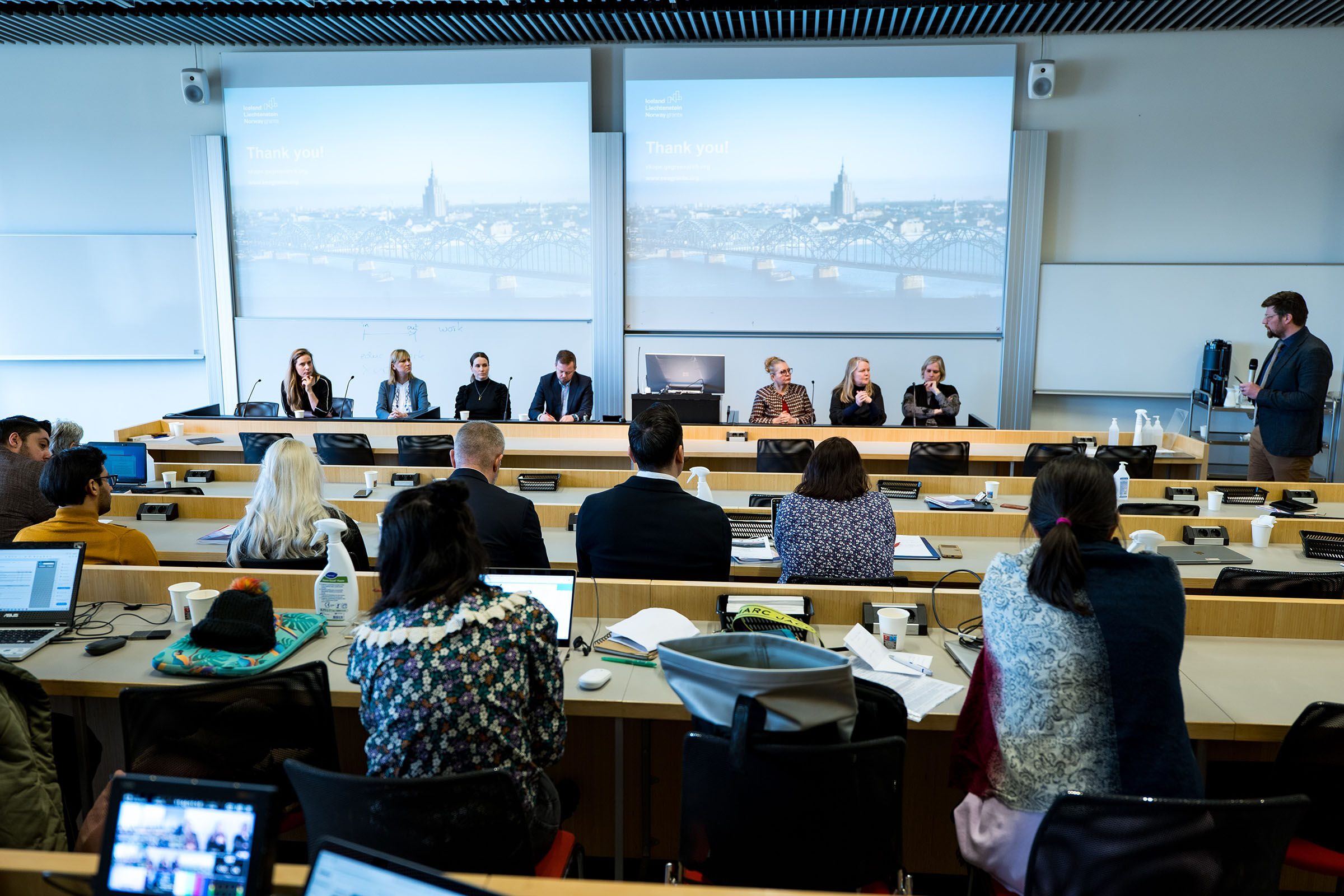
In 2021, there was finally breathing to further develop new connections and collaboration at the University level. Reykjavik University has been in a collaboration with MIT's Industrial Liaison Program(ILP) since 2017, which has been a substantial source of knowledge for Icelandic industry. This collaboration has been strengthened throughout the pandemic and the network is expanding. In 2021, a visit to MIT was planned for the partner companies. It then took place in early 2022.
Reykjavik University continued to support innovation, through its courses, many events and collaboration. The year 2021 saw a mapping of startups coming directly from projects within RU (see picture). Plans to build the Innovation center Boxið also continued and breaking ground is expected in late summer 2022.
Research
The Icelandic Research Fund allocated to RU faculty 270 MISK in total in 2020. RU received 19 grants from the fund in 2020. Reykjavik University awarded ISK 80.5 million to 15 PhD students from the RU Research Fund in 2020.
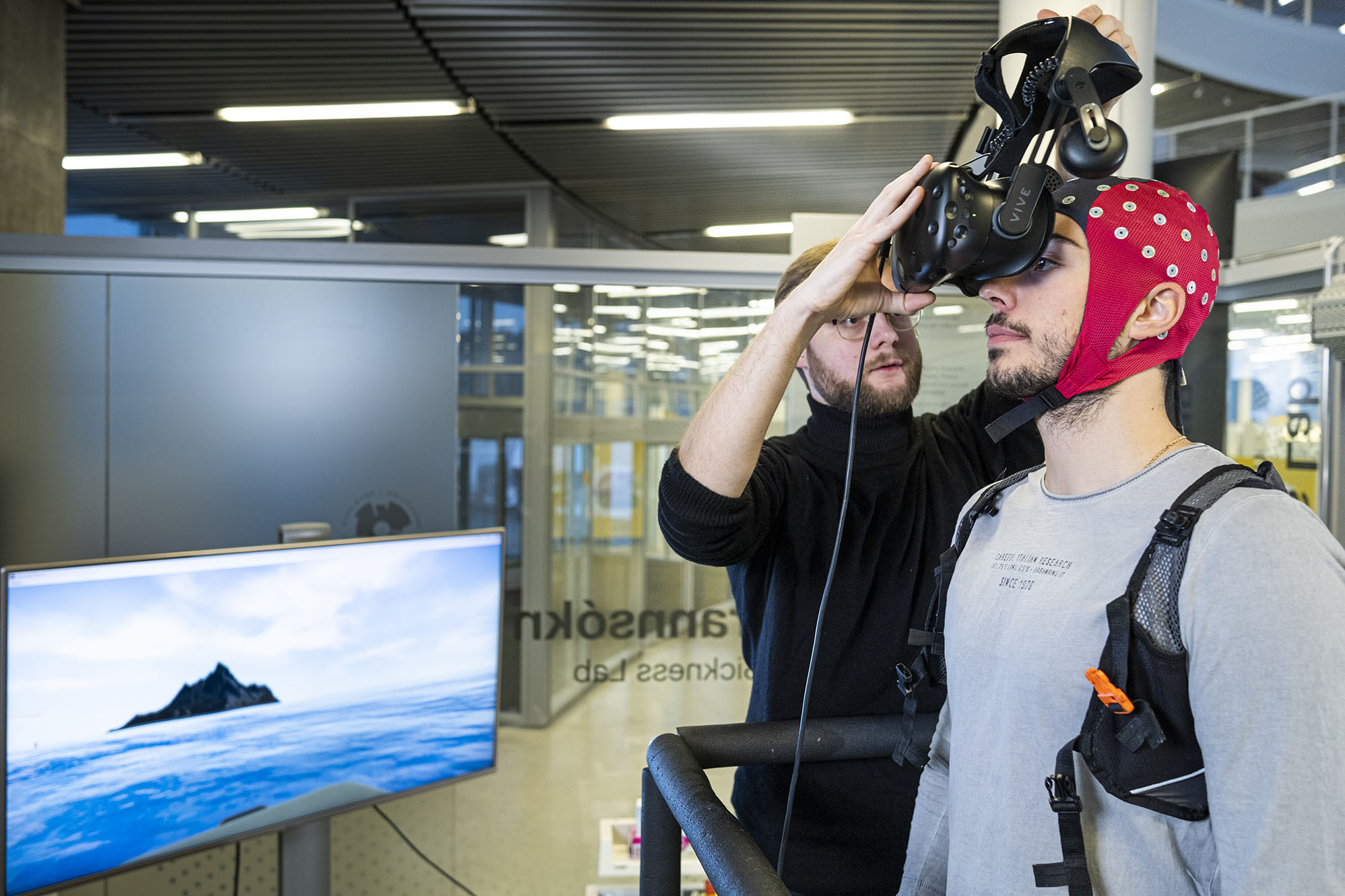
A new Motion Sickness Centre for research into seasickness and other motion sickness was opened in February.
Sleep Revolution, an interdisciplinary international research and development project, received a EUR 15 million grant from the EU's Horizon 2020. The project is led by Dr Erna Sif Arnardóttir, Assistant Professor at the Department of Engineering and the Department of Computer Science.
Executive Education and Continuous Learning
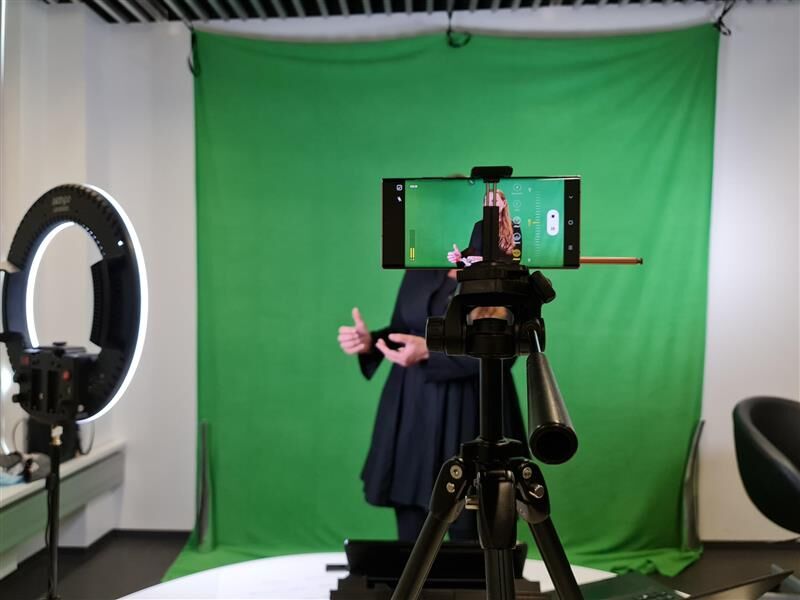
The Open University at RU is a non-academic department of Reykjavik University that annually provides around 150 courses for executives, specialists, and managers from industry who aim to improve their work performance and strengthen their skills. About 1,700 people attended Executive Education and Continuous Learning at RU in 2020. There has been a great increase in courses delivered digitally and that has been the main focus area for the Open University in 2020.
In the summer of 2020, Open University at RU offered various short courses in collaboration with the Icelandic government aimed at individuals that wanted to strengthen their profile in the labour market and those that had lost their jobs due to the Covid pandemic.
Skema is a project run by the Open University at RU dedicated to allowing children to learn essential skills in programming and information technology regardless of class, gender or other factors. Skema also trains teachers in elementary schools in how to teach programming. In 2020, around 2,200 students from all over the country attended Skema's programmes, at almost 100 courses and events.
International Affairs
The International Office is responsible for student and staff exchange within the frame of Erasmus+, Nordplus, as well as other bilateral agreements. It develops international partnerships and provides pre-arrival and support services to all international students at RU. The office is the first contact for international admissions and gathers applications to be processed by RU departments.
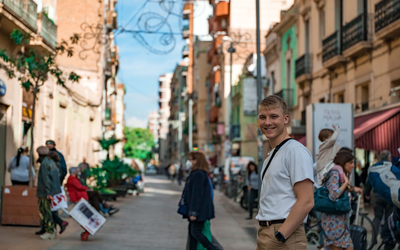 During 2021, 30 RU students went on exchange/internship programs to study at partner universities, while 262 international exchange students came to study at RU. In August the office organised a welcome programme for almost 250 international students, both exchange and degree seeking with the support of dedicated mentors from the local students body.
During 2021, 30 RU students went on exchange/internship programs to study at partner universities, while 262 international exchange students came to study at RU. In August the office organised a welcome programme for almost 250 international students, both exchange and degree seeking with the support of dedicated mentors from the local students body.
The university has continued to prepare for the digitalisation of Erasmus+. The project is co-funded by the European Commission and aims to unite all universities holding the Erasmus Charter within a public infrastructure that facilitates a digital administrative workflow.
There are three staff members at the International Office.
Environment
The University has embarked on a digital journey and processes are being re-evaluated to avoid printouts on paper and to increase efficiency. Examples include electronic signature processes, electronic contract forms, online teaching and exam methods, electronic approval processes, electronic registration forms, etc.
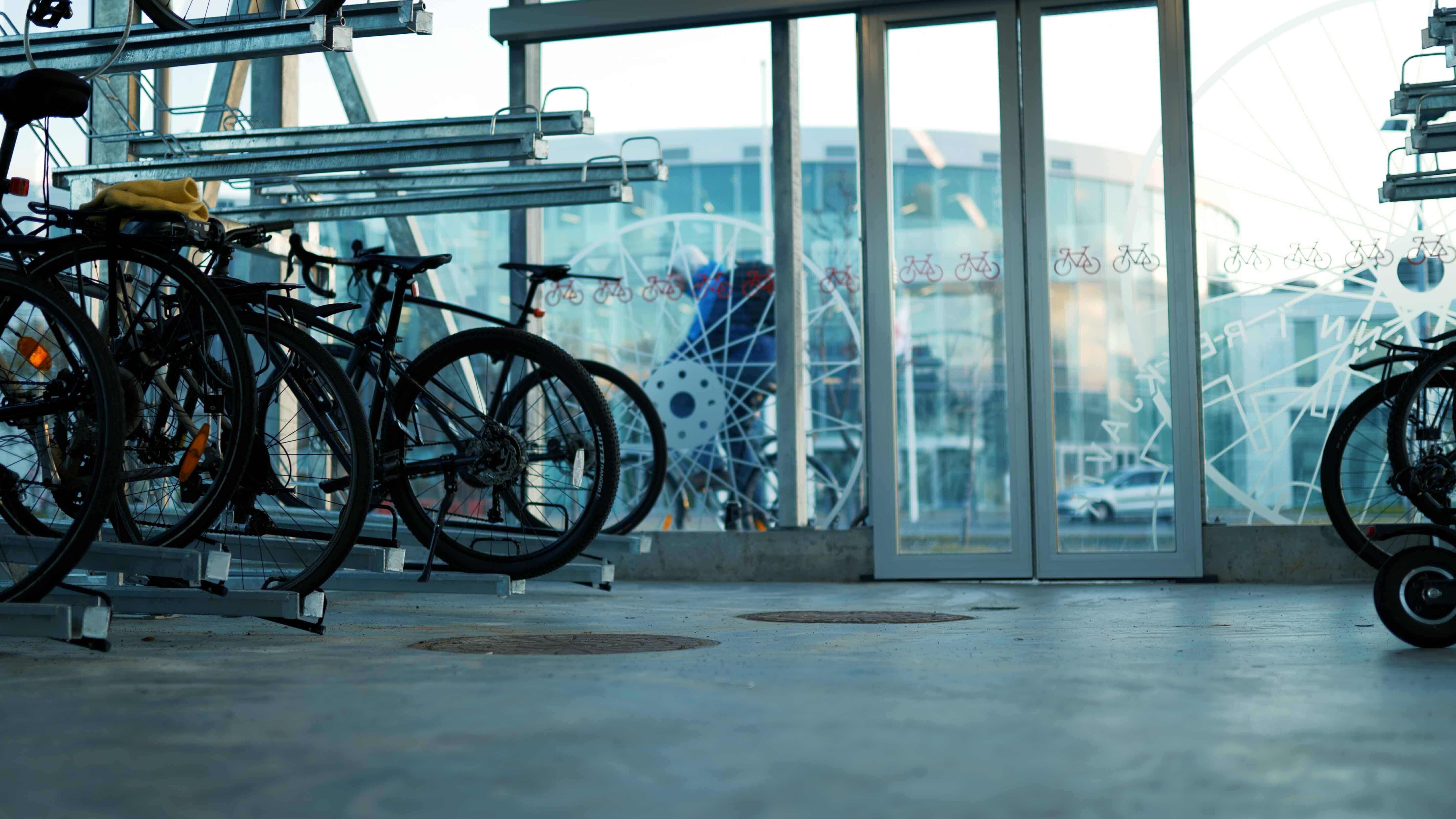
A bicycle shelter was built outside RU in 2020 to encourage students to use environmentally friendly transport. RU has continued to encourage students and employees to travel in and out of work without a car.
Employees
There were 287 permanent employees working at the University (273 full-time equivalents) at the end of 2021. 63% of the University's employees have a teaching and/or research obligation. RU has 94 faculty members in the posts of assistant professor (40), associate professor (22) and professor (32).
Rankings
Rankings on the 2021 Times Higher Education (THE) list of the best universities in the world, announced in 2020, RU is ranked in 301st–350th place among the best universities in the world and is Iceland's highest-ranking university. RU has moved significantly up the ranks from 401st–500th place in 2017, when RU first appeared on the list. The overall list is based on teaching, research, citations, international output and industry income. In terms of scientific citations, RU was ranked first in the world for the second consecutive year, along with six other universities. The citations indicator is an estimate of how often other scientists cite the publications of RU scientists in peer-reviewed outlets. In 2020, THE published a ranking list of young universities where RU was placed 59th out of universities established less than 50 years ago. Among universities that have fewer than 5,000 students, RU was in 18th place.
Housing
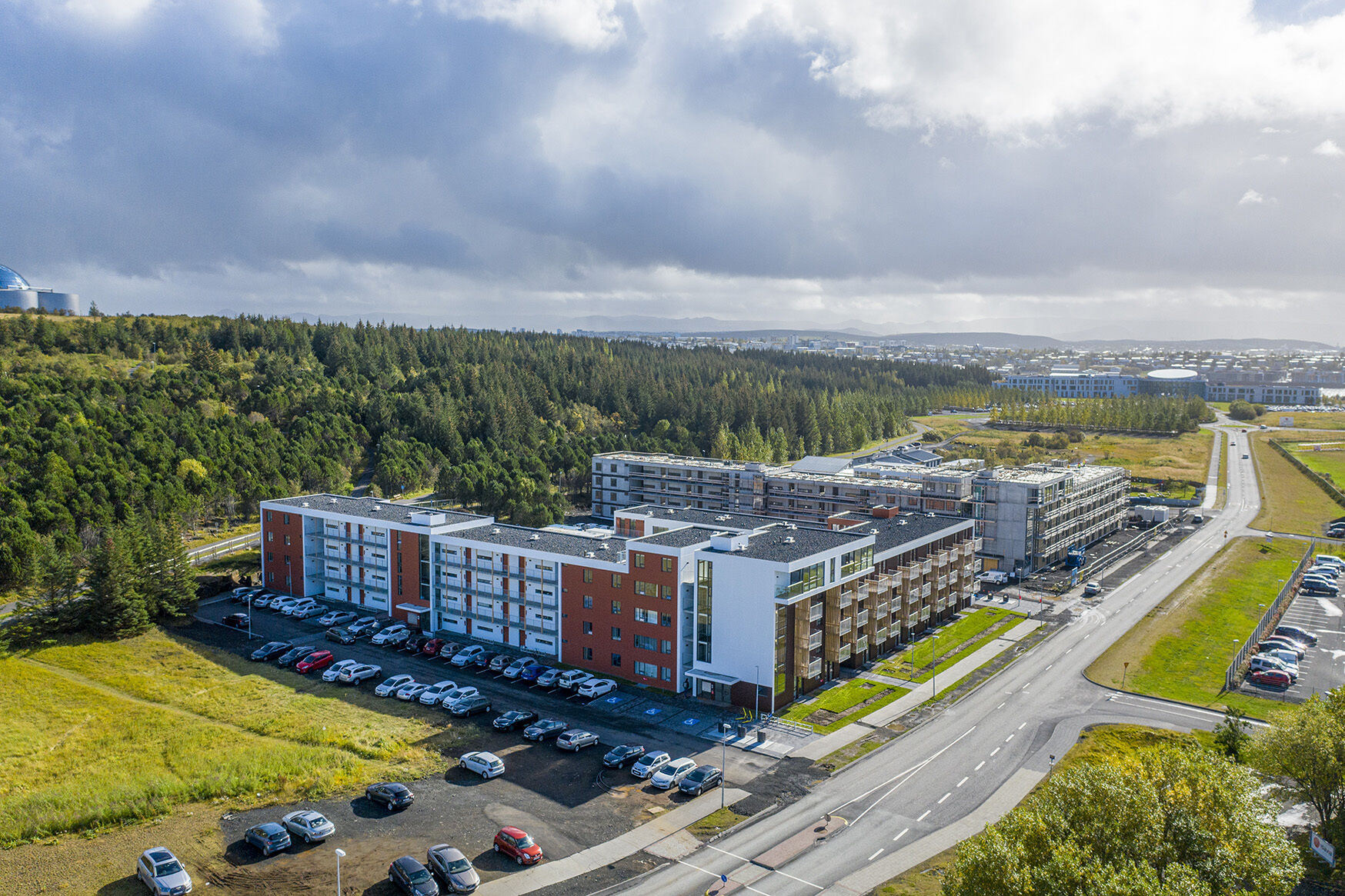
In the autumn of 2021, 130 student apartments were taken into use at Nauthólsvegur 85, which was a very much appreciated increase. RU University Gardens offers total of 252 apartments in two residential areas at Nauthólsvegur 83-85. The apartments all have a private entrance. Work is underway to subdivide the site at Nauthólsvegur 87 for further development for students.
Awards
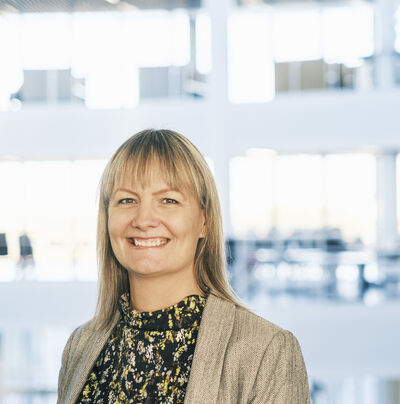 Dr. Erna Sif Arnardóttir, Lector at the Department of Engineering, received the RU 2021 Research Award.
Dr. Erna Sif Arnardóttir, Lector at the Department of Engineering, received the RU 2021 Research Award.
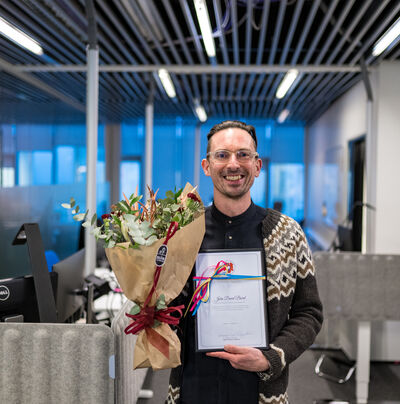
The service-award went to John David Baird, Educational Developer in Office of Teaching Affair.
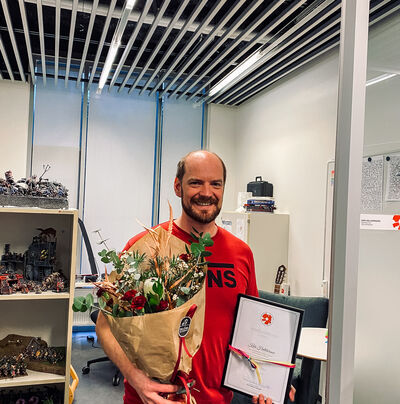
The recipient of the 2021 Teaching Award was Kári Halldórsson, Adjunct at the Department of Computer Science.

